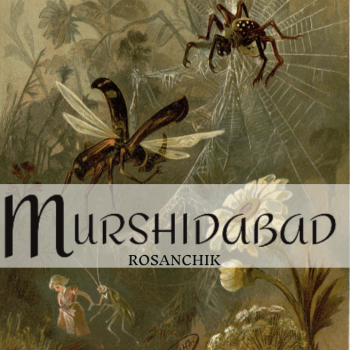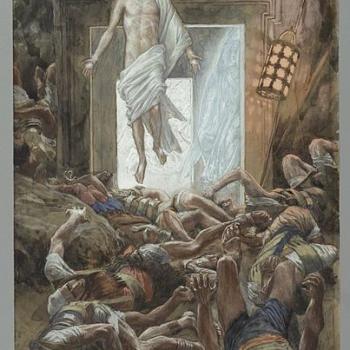I do hope that this book is not any young person's introduction to Heathen myths, just as I hope that Marvel comics are not. When I hear a piece of music, the first version I hear always seems to be the "right" one to me forever after. I was (mostly) able to enjoy the alternative aspects of this book, because I know what the real material has to say, and I can grant an author some license. I don't have to rewind my understanding later to repair damage done by that author.
Otherwise, I thought the mythical content was well done for where the author needed it to go. I started this book expecting not to like it, not to finish it. Now that I am done with it, I have to say that, if you can get past the Sturm-und-Drang of the main character, it projects a good Heathen atmosphere. Among other things, the word honor comes up more than once, and it is taken seriously.
A recent issue of Hillsdale College's Imprimis newsletter has an article entitled "The Case for Good Taste in Children's Books," by Meghan Cox Gurdon. It is more about Young Adult books than books for children. I suggest that you read it. If you also read The Lost Sun, you will better understand why.
I am not saying The Lost Sun is a bad book, or that you should not read it. If you know the Norse myths and you are in the book's target audience, you may like it very much. Of more interest to me is what you may get out of it.
Sturm-und-Drang came up a few paragraphs back. This term was introduced to me by my History of Theater professor in college. He said this was the name of a genre of German drama that was popular "for about six weeks back around 1879 or so. The name means Storm and Stress. The typical S&D playwright was a seventeen-year-old male. The usual topic was patricide." The genre may have been popular for about six weeks, but its name lives on, and is useful.
The protagonist of The Lost Sun does not commit patricide, but he does have other significant Dad Issues.
I noticed something odd several years ago at one of the few remaining independent bookstores in the Bay Area. There was one alcove, or perhaps it was more like a cave, with a sign over it that said Young Adult. There were lots of posters around the entrance of this cave, which was not small. The pictures showed young people looking angry and depressed. Everyone had on way too much eye makeup, and the titles were dark and dire. Most of them had to do with teenage vampires or werewolves or dark witchery, or probably all of the above. Others were out of the This Awful Thing Really Happened To Me And I Survived It Somehow mold. That place had an air about it, much like the Barbie aisle in toy stores, or high-powered lingerie boutiques. This was a shrine, a place one did not enter without a reason. There was some cultural message being sent here.
I think the cultural message has something to do with Sturm-und-Drang and its close relatives. I haven't been seventeen for forty years now, but I remember very clearly what it felt like. A lot of it was awful, and no amount of money could induce me to live that part of my life over again. One of the hardest things about it was the wave-of-the-hand Oh-Everything-Will-Be-All-Right dismissive attitude that came in response whenever I tried to talk about it. It sure didn't feel like everything would be all right! In fact, it damn near killed me. I wonder if the Young Adult cave down at the bookstore is a sign that someone is at least trying to acknowledge with these monochromatic offerings that teenage angst is not something to be dismissed.
Having come out the other side of that angst, I also know that it is not something to be pandered to. If you are a young person and you are reading this: yes, what you are feeling is real and it matters. If you survive these years, it will be because you decide to, and I want you to make that decision that way. If you need a hint that what you are feeling is perhaps not so unique, or perhaps even not so bad, take a sample from the Young Adult cave now and then. Remember, too, that tomorrow comes. One day, this part of your life will be over, and things will be different. You need to spend your time now getting ready for that. That takes whole shelves full of other kinds of books, to be read in one of the greatest and most rewarding efforts of your life.





